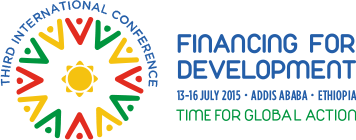G7 Renewable Energy Initiative
| Type | Government announcement |
|---|---|
| Country | Germany |
| Government type | Central government |
| Scope | Regional |
| Themes | Cross-cutting areas; Environment; Infrastructure; International public finance |
Description
The aim of this effort is to improve sustainable energy access in Africa by 2030 by
accelerating the deployment of renewable energy (solar, onshore and offshore wind
power, hydro, biomass and geothermal, off-grid renewables, and grid and corridors
deployment). This initiative is intended to scale up existing initiatives and aims to reach up to 10,000 MW in additional installed renewables capacity by 2020. It would identify and support the bankability of renewable energy projects in Africa, based on national and regional investment plans. It is possible to build on existing multilateral and bilateral programmes – most notably the UN “Sustainable Energy for All SE4All”, IRENA “Africa clean energy corridor” and UNEP initiatives, Africa-EU Energy Partnership, African Union, NEPAD, AMCEN and AfDB flagship programmes including the African Power Vision, the U.S. “Power Africa” initiative and the EU’s Electrification Financing Initiative (ElectriFi). This initiative aims to strengthen coordination between existing efforts and to highlight gaps where future work is needed. It should constitute an integral component of the international efforts to ensure universal access to affordable, reliable and safe and clean energy for all. The G7 aims to use existing financial institutions, i.e. MDBs/DFIs and the Green Climate Fund, and target specific challenges to private investments in climate technologies, i.e. financial and political risks, limited local project development capacity, and weak regulatory framework and sector policies. The initiative will also include innovative instruments as well as scaling up existing successful programs, including but not limited to the “Global Innovation Lab for Climate Finance” (the Lab) which supports the identification and piloting of innovative climate finance instruments aiming to drive private investments into renewable energy and energy efficiency in developing countries.
Partners
African Union, The World Bank, UNEP
Targets
To scale up existing initiatives and to reach up to 10,000 MW in additional installed renewables capacity in Africa by 2020
Indicators
To be developed by the G7 Accountability Working Group
Resources
Backed by the political commitment of the G7 in Elmau to coordinate efforts to
accelerate the development of clean energy in Africa, the African Union, French COP 21 presidency and German G7 presidency in consultation with other G7 members will develop a common plan for further action. The action plan will be worked out in close cooperation with UNEP and the World Bank engaging other relevant stakeholders and presented at the ministerial meeting on climate finance that will take place in Lima during the IMF/World Bank 2015 Annual Meetings as a decisive milestone on the road to COP21 in Paris.
Timeframe
by 2020
